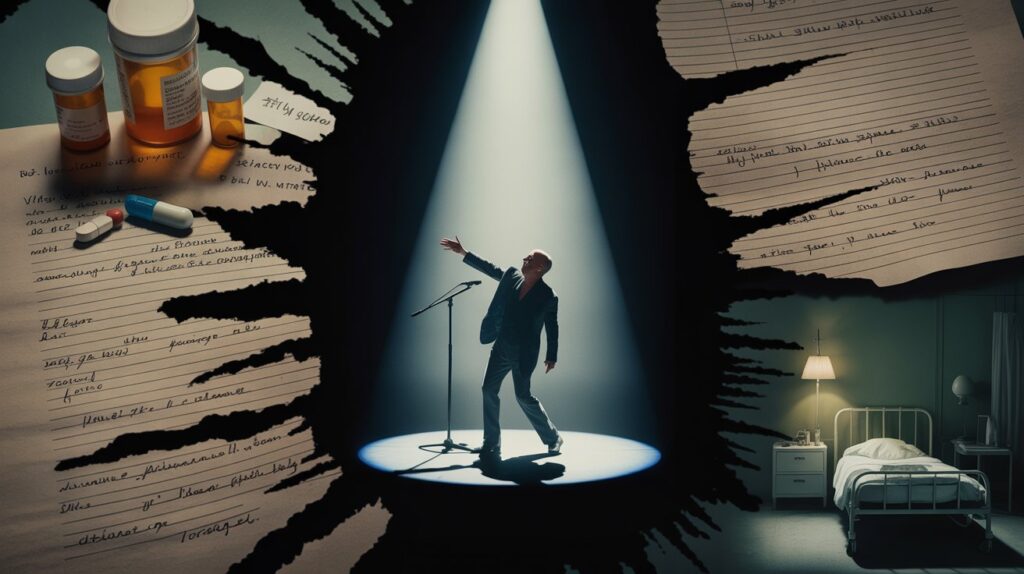
TL;DR
- Billy Joel’s new documentary, Billy Joel: And So It Goes, premiered at Tribeca Festival, detailing his personal struggles.
- Joel attempted suicide twice, following an affair with his best friend’s wife, Elizabeth Weber.
- The singer fell into homelessness, depression, and a psychotic episode before being hospitalized.
The much-anticipated documentary, Billy Joel: And So It Goes, premiered at the Tribeca Festival in New York City this week. The film offers a rare, vulnerable glimpse into the life of the “Piano Man,” chronicling a past riddled with emotional turmoil, mental health struggles, and hard-earned redemption.
According to People Magazine, the documentary revisits the period when Joel was involved in the rock duo Attila alongside drummer Jon Small. The pivotal events that led to his unraveling began with an affair involving Small’s wife, Elizabeth Weber, a relationship that would alter the trajectory of Joel’s personal and professional life.
The Affair That Sparked a Breakdown
While living with Jon Small, Elizabeth Weber, and their son, Joel became entangled in a complicated love triangle. The emotional tension escalated gradually, with Weber describing the chemistry between her and Joel as a “slow burn.” Eventually, Joel confessed his love for Weber to Small, ending both the romantic secrecy and the band’s future.
“I was just in love with a woman,” Joel explained. “I got punched in the nose, which I deserved.”
The fallout was severe. Weber left, and Joel descended into a spiral of alcohol abuse and homelessness. He described reaching a point of such intense depression that he contemplated ending his life — a sentiment all too familiar for those navigating mental health crises.
Suicide Attempts and Hospitalization
Joel’s emotional collapse culminated in two suicide attempts. The first occurred after his sister, Judy Molinari — then a medical assistant — gave him sleeping pills. Joel consumed all of them and fell into a coma, ultimately landing in the hospital for several days.
“I thought I’d killed him,” Molinari said in the documentary.
The second attempt involved drinking a bottle of cleaning fluid. Despite their fractured relationship, it was Jon Small — the man Joel had betrayed — who took him to the hospital. “Even though our friendship was blowing up, Jon saved my life,” Joel recalled.
Recovery Through Music and Marriage
Following hospitalization and counseling, Joel channeled his emotional anguish into music, which became both his salvation and his legacy. Years after the affair, Joel and Weber reconnected and married in 1973, remaining together until 1982.
Weber, speaking at the documentary premiere, expressed admiration for Joel’s work ethic and resilience. “I’ve never known anybody who worked harder than he did in all those years we were together and working together,” she said in an interview with E! News.
Impact on Career and Legacy
Joel’s near-fatal experiences were instrumental in shaping his musical voice. Albums like Piano Man and The Stranger reflect the pain and personal truths embedded in his journey. His openness about these formative moments in the documentary could deepen public appreciation of his artistic output and resilience.
Music critics have long noted that Joel’s lyrical style — emotionally raw, narrative-rich, and often melancholic — likely finds its roots in these early life events. His transformation from a troubled artist to an American icon illustrates the therapeutic power of music.
Ongoing Health Struggles and Public Support
In parallel with the documentary’s release, Joel recently canceled several tour dates due to normal pressure hydrocephalus (NPH), a rare neurological condition that affects brain function. Fans have expressed widespread support, urging the music legend to prioritize his health.
Despite this setback, Joel continues to be recognized not just for his musical accomplishments, but also for his candidness in confronting life’s darkest moments.
The Film’s Broader Message: Help Is Out There
The documentary doesn’t merely recount a musician’s history; it underscores the reality of depression and suicide. By sharing his story, Joel joins a broader movement of artists using their platforms to destigmatize mental health conversations.
As noted in the film, Joel’s suicide attempts were not the end but rather the catalyst for a life rebuilt. His decision to seek help — and the subsequent transformation — reflects what can be achieved when individuals access the support they need.
If you or someone you know is struggling, call or text 988 in the U.S. or visit the International Association for Suicide Prevention for global resources.
Documentary Details and Release
Billy Joel: And So It Goes is slated to air on HBO in July 2025, offering a comprehensive narrative of the legendary musician’s life, legacy, and lessons learned.
Billy Joel’s Personal and Professional Milestones
| Milestone | Description | Source |
| First suicide attempt | Overdose on sleeping pills after affair with Elizabeth Weber | People Magazine |
| Second suicide attempt | Drank cleaning fluid; taken to hospital by Jon Small | CNN |
| Marriage to Elizabeth Weber | 1973–1982; Weber previously married to Jon Small | Biography.com |
| Music therapy and recovery | Used music to express and overcome emotional pain | NIMH |
| Current health issue | Diagnosed with Normal Pressure Hydrocephalus (NPH) | Mayo Clinic |
| Upcoming documentary premiere | Billy Joel: And So It Goes airing on HBO in July 2025 | HBO |
Conclusion
Billy Joel’s life story is a powerful testament to resilience in the face of mental illness, betrayal, and personal collapse. His willingness to revisit painful chapters of his life — publicly and unfiltered — offers an essential message of hope: no matter how deep the pain, recovery is possible, and support can come from the most unexpected places.The documentary Billy Joel: And So It Goes promises to be both a biographical tribute and a public service announcement, reinforcing that success doesn’t preclude struggle — and that seeking help is a courageous act.




